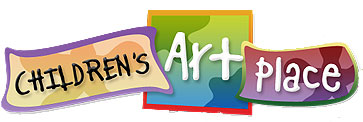Why Art?
ART EDUCATION – Our Primary Focus
When school budgets are continually being cut in all communities across our country, visual art education is usually one of the first programs sacrificed. On the surface it simply doesn’t seem as important as reading, writing and math. There is certainly no art achievement test at the end of the school year. This may be true, but what is often overlooked is the underlying importance of the arts in helping children to fully understand math and to develop those very same reading and writing skills. Study after study has shown the correlation between exposure to the visual arts and success on standardized reading and math tests.
“We have found that instruction in the arts, including music, improved student performance in other areas. I call the arts ‘a new skill for the twenty-first century.’ They certainly need to be a basic part of every school’s curriculum.”-(Richard Kelly)
Studies Show That Art Education:
- Encourages Higher-Order Thinking Skills
- Promotes Creativity
- Enhances Fine Motor Development
- Sharpens Observation Skills
- More Good News About The Arts:
Positive information rolls in daily about the effects of the arts. A study on more than 25,000 students from the U.S. Department of Education’s National Longitudinal Study found that those with high levels of art involvement did better than students without art stimulation on several academic measures, regardless of students’ social or economic status.
The above information is taken from the Partnership for Learning website
Increase Your Child's Ability To Learn
8 Important Skills That Art Classes Teach
- Development of the Artistic Craft
- Persistence (how to persevere through frustration)
- Expression (moving beyond technical skill)
- Making Clear Connections (between schoolwork and the world outside the classroom)
- Observing (how to truly see and evaluate what's in front of you)
- Envisioning (perceiving multiple outcomes in your mind)
- Innovating Through Exploration
- Reflective Self-Evaluation
Though far more difficult to quantify on a test than reading comprehension or math computation, each has a high value as a learning tool, both in school and elsewhere in life.
For students living in a rapidly changing world, the arts teach vital modes of seeing, imagining, inventing, and thinking. If our primary demand of students is that they recall established facts, the children we educate today will find themselves ill-equipped to deal with problems like global warming, terrorism, and pandemics.
Those who have learned the lessons of the arts, however - how to see new patterns, how to learn from mistakes, and how to envision solutions - are the ones likely to come up with the novel answers needed most for the future.
Ellen Winner is a professor of psychology at Boston College. Lois Hetland is an associate professor of art education at the Massachusetts College of Art. Both are also researchers at Project Zero at the Harvard Graduate School of Education and co-authors, with Shirley Veenema and Kimberly Sheridan, of ``Studio Thinking: The Real Benefits of Visual Arts Education," published by Teachers College Press.
For the entire article written about this book go to:
http://www.boston.com/news/globe/ideas/articles/2007/09/02/art_for_our_sake/
“Learning through the arts promotes the idea that there is more than one solution to a problem, or more than one answer to a question.”
Elliot Eisner, a professor emeritus of education at Stanford University
In 2001 the non-profit organization Americans for the Arts, conducted a public awareness campaign. The campaign included a nationwide survey regarding the importance of the arts in education. Americans for the Arts says, “We found that 95% of parents believe the arts are important in preparing children for the future. Parents view the arts as contributing positive attributes to their children, and 91% thought the arts were an important part of a well-rounded education” (2005)
Americans for the Arts. (2005) The PSA survey findings. Washington, DC: Americans for the Arts.
http://www.americansforthearts.org/public_awareness/campaign_info/
Albert Einstein once said, “When I examine myself and my method of thought, I come to the conclusion that the gift of fantasy has meant more to me than my talent for absorbing knowledge.”
Einstein also said that he thought in images.
“Cutting school arts programs in an effort to boost student academic achievement is counterproductive. In fact, the research outlined in Critical Evidence suggests that eliminating the arts in schools denies students the opportunity to develop crucial cognitive skills and motivations they need to achieve at high levels.”
AEP (Arts Education Partnership) Director Richard J. Deasy
